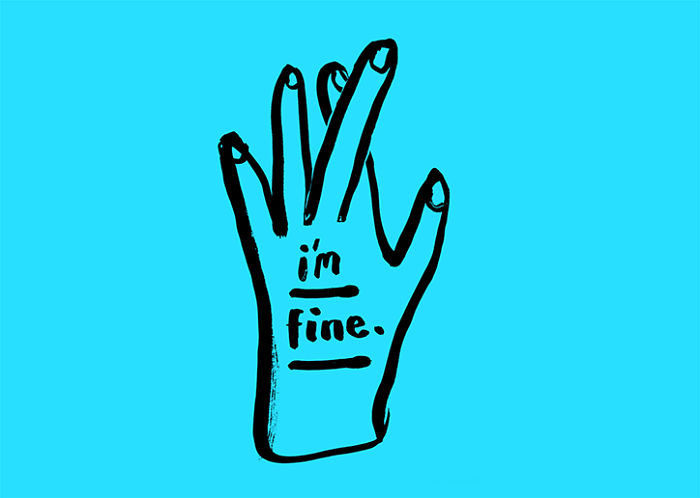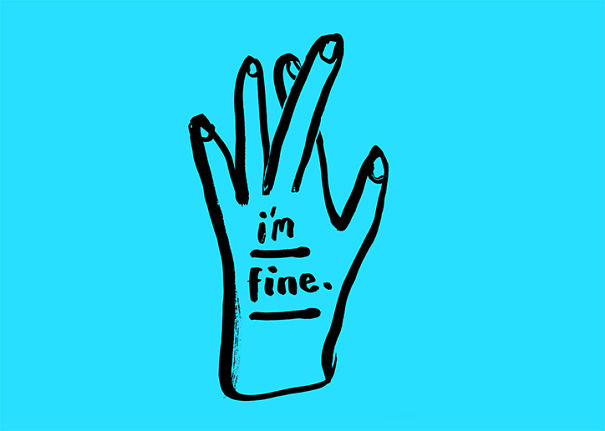Going through a loved one dying is difficult. Understanding the grieving process can help to make you feel better when you are going through it. When you grieve you go through these 5 stages, it may be all at once, it may take a long time or a short time.
If you love gifs and want to make your own, copy and paste this link: bit.ly/1Ua7RYl
More info: nhs.uk
1. Denial
It is a normal, healthy defence mechanism that buffers the immediate shock. We block out the words and hide from the facts. This is a temporary response that will pass.
Source: assets.itsnicethat.com
2. Anger
The anger may be aimed at inanimate objects, complete strangers, friends or family. Anger may be directed at our dying or deceased loved one. Rationally, we know the person is not to be blamed. Emotionally, however, we may resent the person for causing us pain or for leaving us. We feel guilty for being angry, and this makes us more angry.
Source: big.assets.huffingtonpost.com
3. Bargaining
You start thinking ‘What if I’d…’ running through all possible different outcomes in your head. You try to bargain with a higher power and what you’d want to do differently.
Source: www.canadiangirlruns.com
4. Depression
It’s a good time to make sure you get as many hugs from as many loved ones as possible. Some people may feel depressed about things not directly related to the death, or simply depressed internally.
Source: assets.itsnicethat.com
5. Acceptance
Reaching this stage of mourning is a gift not afforded to everyone. Death may be sudden and unexpected or we may never see beyond our anger or denial. It doesn’t mean you feel any less sad, or you forget about the deceased person, but you feel calm with what has happened.
Coping with loss is ultimately deeply personal — no one can understand exactly how you feel. Friends can still give comfort – it will help to talk about your feelings with them, or do things with them that distract you.
If it’s still getting you down, don’t hesitate to talk to your GP or call NHS 111.
Always talk to someone about how you’re feeling, someone you trust or a helpline, such as Samaritans on 08457 90 90 90, for confidential, non-judgmental emotional support. Or ChildLine 0800 1111 to get help and advice about a wide range of issues, talk to a counsellor online, send ChildLine an email or post on their message boards.
http://young.scot/information/mind/dealing-with-the-death-of-someone-close-to-you/
Source: a.dilcdn.com
168views
Share on Facebook








4
0